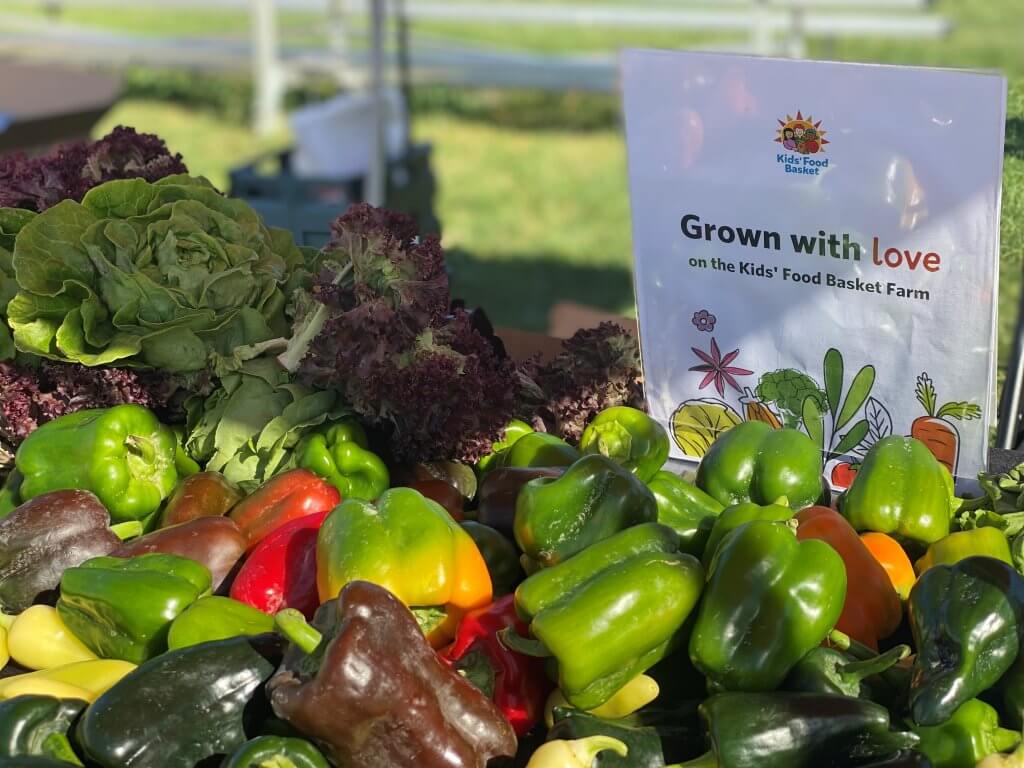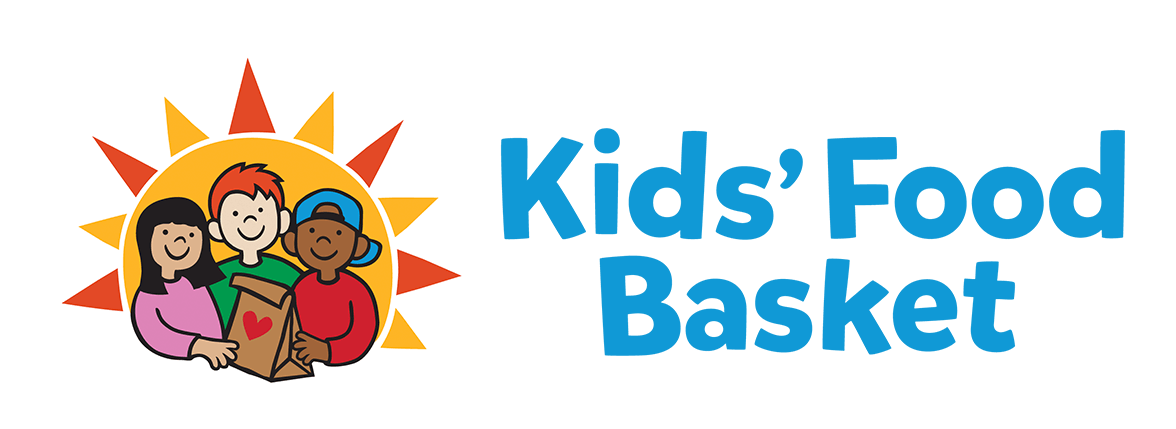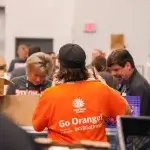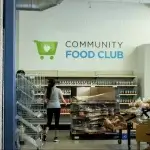
When the community comes together, it makes the most impact.
This summer, Kids’ Food Basket (KFB) partnered with the Cesar E. Chavez Farmer’s Market, put on by the Roosevelt Park Neighborhood Association, to provide healthy, local produce to food-insecure families in Kent County.
The market was one of over 250 participating locations across the state of Michigan that accept Double Up Food Bucks.
Double Up Bucks is a program for individuals who qualify for Supplemental Nutrition Assistance Program (SNAP) benefits, where they can earn double the spending power towards healthy, local fruits and vegetables – decreasing financial barriers for families wanting to make healthier food choices.
Double Up matches milk, fruit and vegetable purchases dollar for dollar, up to $20 a day.

This year, it was the first time that the Farmer’s Market was able to accept the Double Up Bucks program.
However, a caveat of the program is that it can only be used on produce that is locally grown from Michigan.
And due to COVID-19 and statewide staffing shortages at local farms, getting Michigan-grown fresh produce can be a barrier for the market.
“We had a lot of problems finding and sourcing from produce vendors this year, just with coming back after COVID, there was a lot of staffing shortages for a lot of farms that we reached out to,” said Emily Brink, assistant market manager of the Roosevelt Park Neighborhood Association. “On the weeks when we do not have food from KFB, we have been sourcing from a distribution site where we purchase food from. While it is fresh produce, it is not grown in Michigan.”
Partnering with Kids’ Food Basket has helped relieve that barrier.
Throughout August and September, Kids’ Food Basket donated a total of 903 pounds of fresh produce grown right on the 10-acre sustainable Kids’ Food Basket Farm.
Items such as lettuce, squash, peppers, tomatoes, garlic, onions, collards, beets, cabbage, pumpkins and honey were given, equally roughly 7,828 servings of healthy food for the community.
“I see a lot of difference in what we are receiving fresh from the farm and receiving from the distribution site. With the Kids’ Food Basket food, I can tell it is Michigan grown, it has not been transported to get here. I can just tell it is fresher, keeping better,” Brink said. “The community can tell as well. I have had a few people come back on a week when the KFB food is not here and ask me for a product that came from the farm because it was so good.”
 Currently, major supermarkets in the state such as Meijer, Kroger and Walmart do not yet participate in the Double Up program, meaning opportunities, where smaller independent farmers markets can provide local healthy food, makes a huge impact for those who are relying on it.
Currently, major supermarkets in the state such as Meijer, Kroger and Walmart do not yet participate in the Double Up program, meaning opportunities, where smaller independent farmers markets can provide local healthy food, makes a huge impact for those who are relying on it.
“A lot of families have returned to the market this year. Families have come back when they see the fresh produce that they like. Everyone has been really excited to have access to this food.”
When community-based partnerships come together to put people first, it has the power to make lasting change for all.
Brink said, “It is great that in this community, people can rely on each other. It is important that together, we can be more community-based and try to give what we can and get what we can, so that then in return we can give it back once again.”



